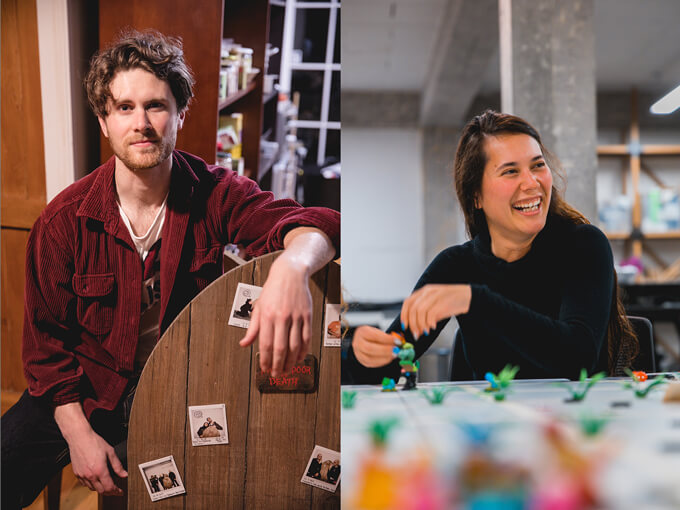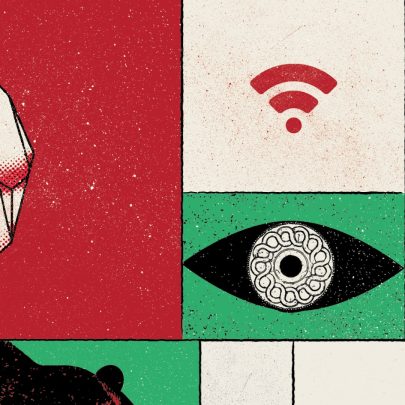Nov 11, 2019 Business
Getting paid to play your favourite role-playing game sounds like a fantasy – but could it become a reality? Metro intern (and journalist) Ayla Miller goes underground into the world of New Zealand’s professional Dungeons and Dragons players.
Once a week, the walls of a dim basement in Mount Eden dissolve, making way for fantastical forests, bustling medieval streets and shady taverns.
Five friends gather around a cluttered table and their attention turns to a world where the only limit is their imagination. Josh Turner clears a space for his books and dice and sits himself at the head of the table. He has been playing the tabletop role playing game Dungeons and Dragons (D&D) with friends for about 20 years. Now he wants to share his skills with others. He’s going pro.
Turner is one of a handful of D&D players around New Zealand turning their hobby into a job and has recently launched his own professional dungeon master business – Bone Rattlers Campaign Services. During the day Turner works in IT and dreams of turning his side-hustle into a full time job.
“The drive behind Bone Rattlers was that I wanted to get into a position where I’m doing something I enjoy rather than just working,” he says. Until then, as long as his players are having a good time, he is content. “Sooner would be better but I’m here for the long haul. I want to build this into something that’s not just a good source of income for myself but also helps the community grow.”
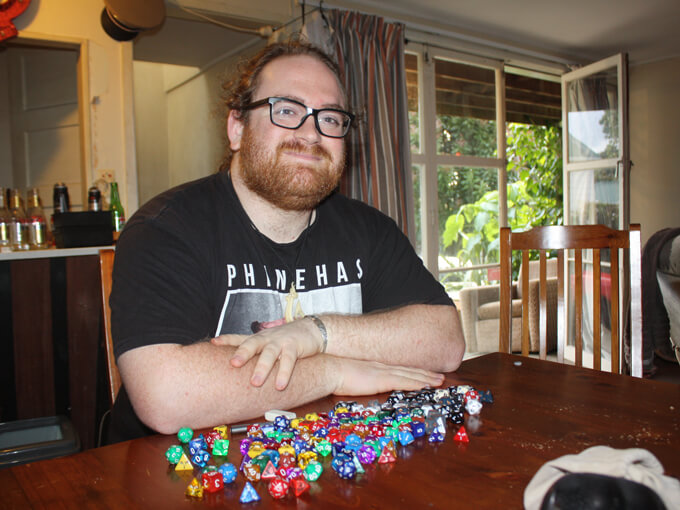
D&D differs from traditional war games by allowing each player to build their own character. These characters typically form a party who then embark on adventures and work together to solve problems. Each game or campaign is overseen by a referee who is known as the dungeon master (DM).
More recently, thanks to featuring in television shows such as Stranger Things and The Big Bang Theory, D&D has crept out of the basement and upstairs into mainstream pop culture. No longer solely the domain of young teenage boys, people of all ages and dispositions are taking it up, drawn to the collaborative story-telling nature of the game.
Like Jak Charles, the founder of one of New Zealand’s first Dungeon and Dragons professional game master hiring services Questbook. He’s young, he’s smart and he’s far from your typical nerd. The large, comfortable flat he shares with house mates is decorated with tasteful art and indoor plants.
He’s a graphic designer by trade but “got tired of making other people’s dreams come true,” so quit his job and now works at a gift store, managing Questbook on the side. Already a fan of other board games, Charles wanted to give D&D a go, but didn’t know anyone who could teach him. So he decided to create a website which allowed people to hire DM’s in Auckland, Wellington and Christchurch.
Players can pay $25 per person per game with a minimum of four players. They can choose either a single adventure, a campaign or a special event and each DM is entirely in charge of their own hours and availability. “I’m a sucker for stories,” Charles says. “For me, I enjoy being in control of my own story. I do enjoy watching movies and TV shows but it’s very passive. [D&D allows you] the freedom to make decisions that shape the story. There’s this crazy thing about sitting around a table and building a story together.”
As the son of two artists, he’s seen the struggle between doing something for the love of it and trying to make a living. “[My parents] are incredible artists but very poor business people. My brother and I saw them get taken advantage of because they just wanted to help people out.”
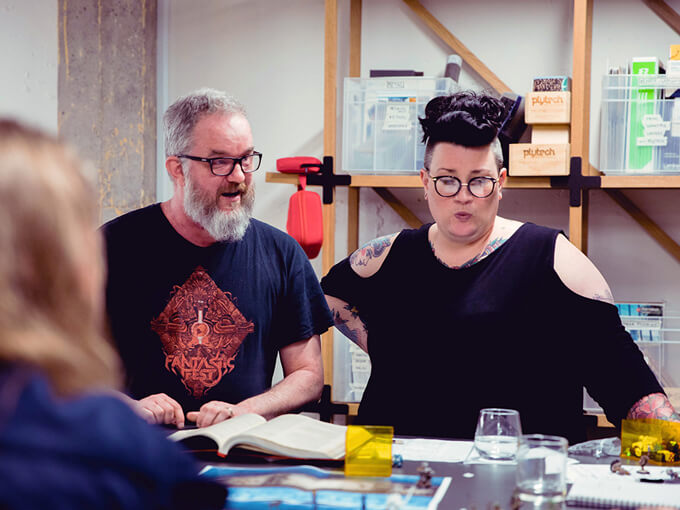
Many of his own DM’s struggle with the idea of being paid to do something they love but he’s determined to use Questbook to help them see their value. “I want to legitimise it. I think [being a DM] is such an amazing skill to have. To not only have the social skills to read a crowd and bring the quiet person into the game but also feed the energetic person who wants to kill everything. To weave a story and put on voices. I see it as an art form.”
For some, D&D is more than just escapism and entertainment. It’s an invaluable way of learning social skills and making friends. Among those making a living from being a DM is Tanwen Ward of Waikato based autism and disability support organisation Enrich + Spectrum Energy.
As a D&D player herself, and with a background in psychology, she knew the game had the potential to be a fun and gentle way of developing social skills. Ward found research supporting her theory and began running games for teenagers and young adults as part of her support groups. The idea took off.
“Now we have six DM’s working at least one night a week each. It’s definitely become more popular and our teams really love it.” The benefits are obvious. “Teams have reported back that they have friends for the first time in their entire life,” she says.
“There is quite a big future in professional DM’ing. It’s already happening in America where people are charging $20 per person an hour to run games and it’s starting to grow in New Zealand.”
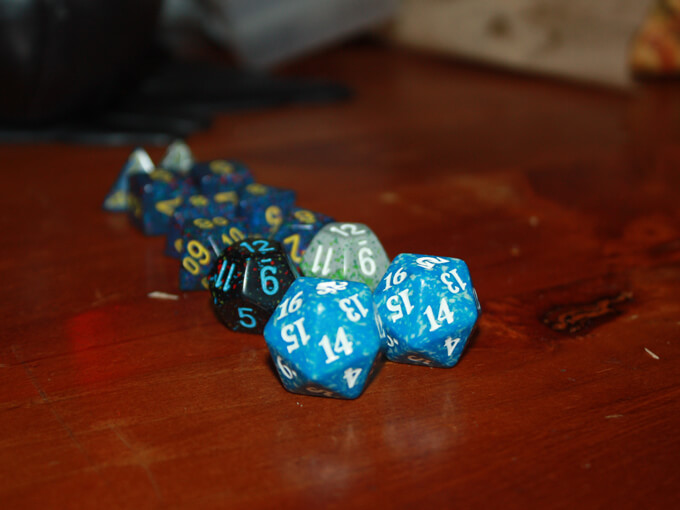
Back in the Mt Eden basement, Josh Turner is cautiously optimistic about the future. “I don’t think it’s going to take off very quickly just because the nature of the community has always been very much ‘oh I’ll just come and run your game for you.’ But there is the potential for it to grow into another facet of how the community operates in New Zealand. It’ll take people like myself and Questbook really cementing a good reputation for providing a quality service.”
The sporadic nature of this type of gig based industry makes it difficult to form an accurate picture of this new field in New Zealand. According to Auckland University’s graduate school of management professor Elizabeth George, businesses like Questbook and Bone Rattlers raise more questions than answers.
“I’d also like to see more research done around whether they continue to still be interested in this hobby or do they lose interest in the topic. What happens to their passion? How long do these businesses last?”
For Charles, enabling people to be paid for their services as a DM is more than just making money. It’s about supporting an artform and giving it a foundation on which to grow. “Getting people to pay money [for the DM service] is saying ‘I believe in this and I think it’s worth my time and money to be part of this thing.’ There’s a lot of power in that exchange.”

